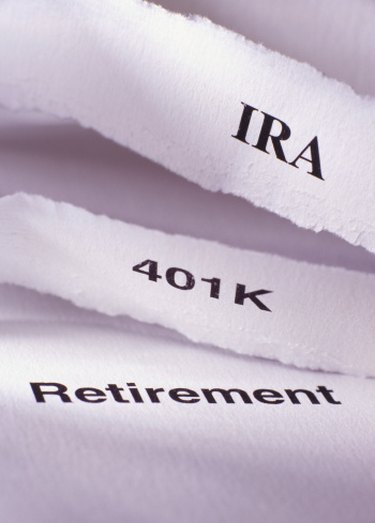Which of the Following Is Correct Regarding a 401k Plan

Several kinds of retirement plans are available.
The 401(k) is an employer-sponsored retirement plan that was established in 1980. Its name comes from the section of the Internal Revenue Service code under which it fell. These plans were designed to allow employees to direct a portion of their income into the plan on a pre-tax basis. Unlike a pension plan, which provides a defined benefit, the individual defines the contributions to a 401(k) plan, and no guarantee exists as to the eventual benefit. A 401(k) is a defined contribution plan.
Features
Contributions to a 401(k) are made on a pre-tax basis. So the advantage to the employee is reduced taxes in the year the contributions are made. In addition to the tax deduction on contributions, interest and gains on the investments inside the account grow tax-deferred. Unlike other investments that trigger taxes due on dividends, interest or capital gains, the money inside a 401(k) avoids taxation until it is withdrawn from the account. Money that is withdrawn is then normally taxed as ordinary income in the year it was withdrawn.
Benefits
The benefits of a defined contribution plan such as a 401(k) are many, but the greatest benefit comes from the ability to define your contribution. Unlike a defined benefit plan such as a pension, you dictate how much and when to contribute to the plan, and you can start and stop contributions at any time. This flexibility allows you to control how much money you save based on your financial needs. Also, 401(k) plans typically provide a number of investment choices, giving you control over how your money is invested.
Drawbacks
The problem with a defined contribution plan such as a 401(k) is that it has little or no guarantee as to what your benefit will be in the future. Your benefit fluctuates from day to day and year to year based on how the money is invested. When uncertainty is in the markets, making the wrong investment choices or simply not saving enough could have a negative impact on your retirement.
Alternatives
While most employers offer a defined contribution retirement plan such as a 401(k), some don't. If you want to contribute to a defined contribution plan and your employer doesn't offer one, you may look elsewhere for that pre-tax savings. For most people, the best alternative is a Traditional individual retirement arrangement/account (IRA). These individual retirement accounts allow the same pre-tax contributions, but you open the account; your employer does not open the account. Self-employed individuals have even more options such as a Keogh, a simplified employee pension individual retirement account (SEP IRA) or even a Solo 401(k).
Considerations
With the generous tax breaks provided by the 401(k) come some restrictions. The biggest is the restriction on withdrawals. Age and employment status requirements can make getting your hands on the money difficult before retirement age. Some plans offer a 401(k) loan that allows you to borrow from your account in a time of need. These restrictions should be considered when contributing, and an emergency fund should be available to cover unexpected expenses so that you don't have to tap into your 401(k).
Which of the Following Is Correct Regarding a 401k Plan
Source: https://www.sapling.com/7369599/401k-considered-defined-contribution-plan
0 Response to "Which of the Following Is Correct Regarding a 401k Plan"
Post a Comment